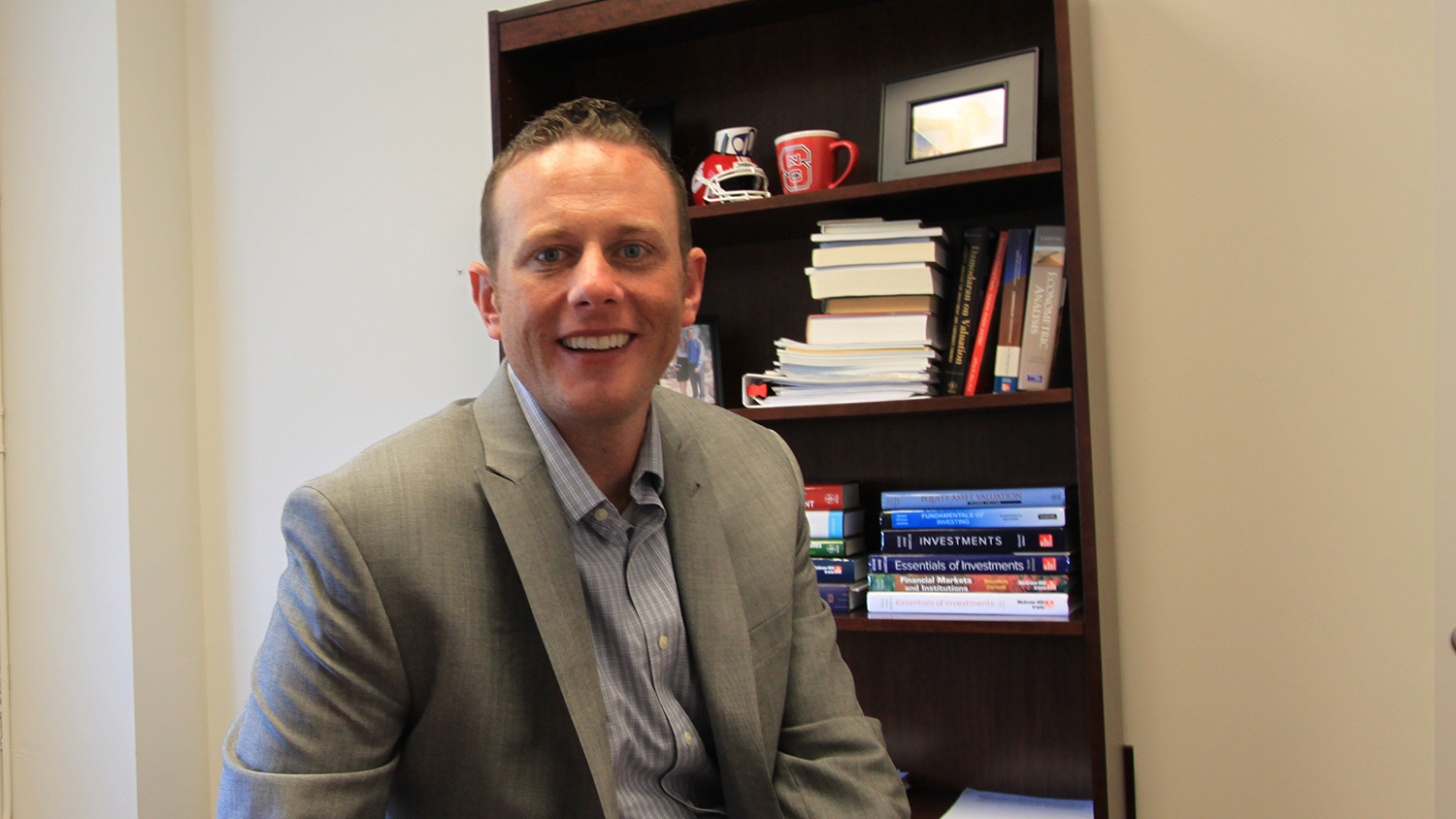Faculty Research Award Recipient Profile: Jesse Ellis

The Poole College Board of Advisers has provided financial support for a new awards program recognizing faculty for research productivity. These outstanding scholars, named in May, receive a monetary award and carry the honorary title of Poole Advisory Board Scholar for the 2017-18 academic year. Meet one of them: Jesse Ellis, assistant professor of finance, Department of Business Management.
Jesse Ellis
Associate Professor of Finance
Ph.D., Finance, University of Pittsburgh, 2011
- Joined Poole College in 2013.
- Poole College 2017 Summer Research Award Recipient
- Directory Page
Q: Area of research
Broadly speaking, my research focuses on corporate governance and investments, with a particular focus on hedge funds. Hedge funds are private investment companies that manage assets for wealthy individuals and institutions.
Q: What drew you to this line of research? What drives your passion for it?
Although hedge funds are very important players in the financial markets, the fact that they are private means that many of their actions are opaque, making them a challenge for investors and academics to understand. I am fascinated by trying to understand the true risks and rewards associated with investing in hedge funds.
Q: What are your intentions for your research?
In particular, I am interested in applying real world constraints to our understanding of hedge fund performance. Unlike a bank or mutual fund, where an investor can demand his money back that same day, hedge funds place restrictions on investor withdrawals. Hedge fund investors typically can only get their money back after a being invested in the fund for a year, and afterwards can only ask for their money every quarter or so. Understanding these types of real world constraints that hedge funds impose is important, because if you just examine their stated returns, hedge funds can look very attractive. However, the true investor experience can be quite different. I currently have a project where my coauthors and I analyze how a hedge fund’s performance is affected by the degree to which investors are restricted from withdrawing their money.
Q: How does your research impact your teaching?
I teach investments related courses, so I am able to talk about my research interests quite a bit. I don’t directly teach my research to students, but I do incorporate hedge funds and the hedge fund manager perspective when I can. For instance, I can explain an investment strategy that hedge funds pursue, and explain how this might work better for only those funds that restrict investor withdrawals. That way, students can see there is no free lunch, and that sometimes in order to earn stellar returns you may have to make other sacrifices, like being unable to access your money when you want it.


